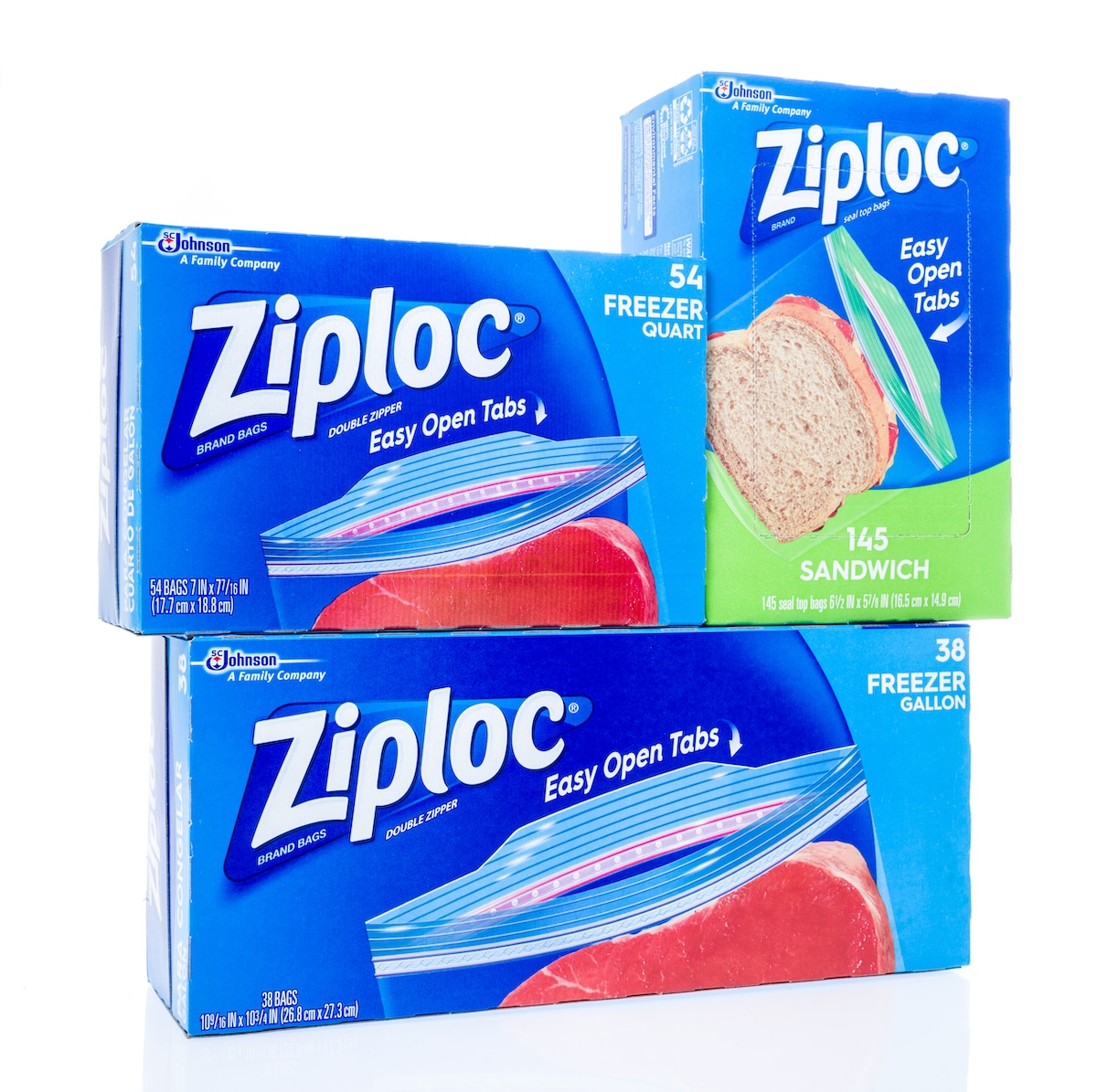Can You Freeze Roasted Turkey?
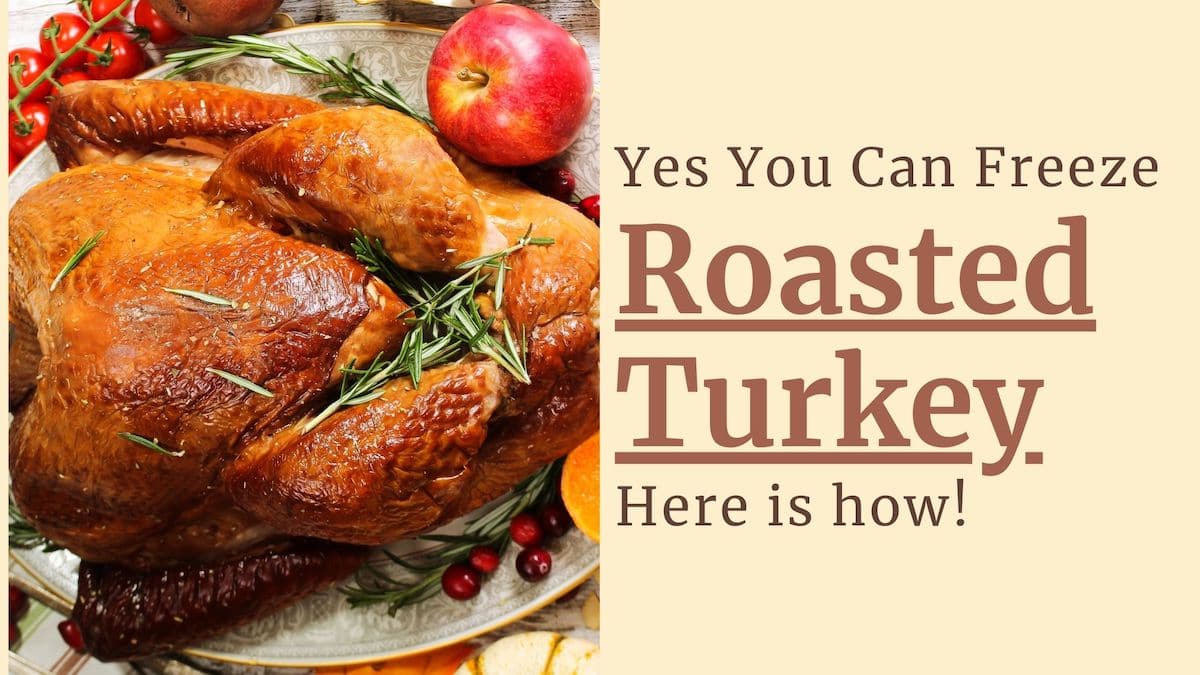
I am hosting my first thanksgiving meal. I have all mine and my husband’s family coming over.
As I have 12 people eating, 8 adults and 4 children, I have ordered a 15 pound turkey.
I read that as a rule of thumb I will need 1 pound per adult and ½ pound per child, in my case that will be a 10 pound turkey. But I would hate for people not to be able to have seconds if they want to, so I decided to get something bigger, I got a whopper 15-pound turkey (can you hear me shiver?)…
I have never cooked anything as big as that, but I am going to try it. If this year we end up with McDonald’s for thanksgiving dinner I will give back the mantle to mom!
But if on the other hand, I am successful, then I may need to keep some of that turkey for other meals. Here is the thing tho – even if I succeed and the turkey turns out to be delicious, I am expecting to have quite a lot of leftovers.
This got me thinking. Can you freeze roasted turkey? The answer is yes you can freeze cooked turkey, ready to be used afterward in yummy soups, casseroles, or even in sandwiches. My mouth is simply watering as I write this.
Keep on reading as I will explain the best way to freeze your cooked turkey to avoid freezer burn and how to reheat it.
Can You Freeze Roasted Turkey?
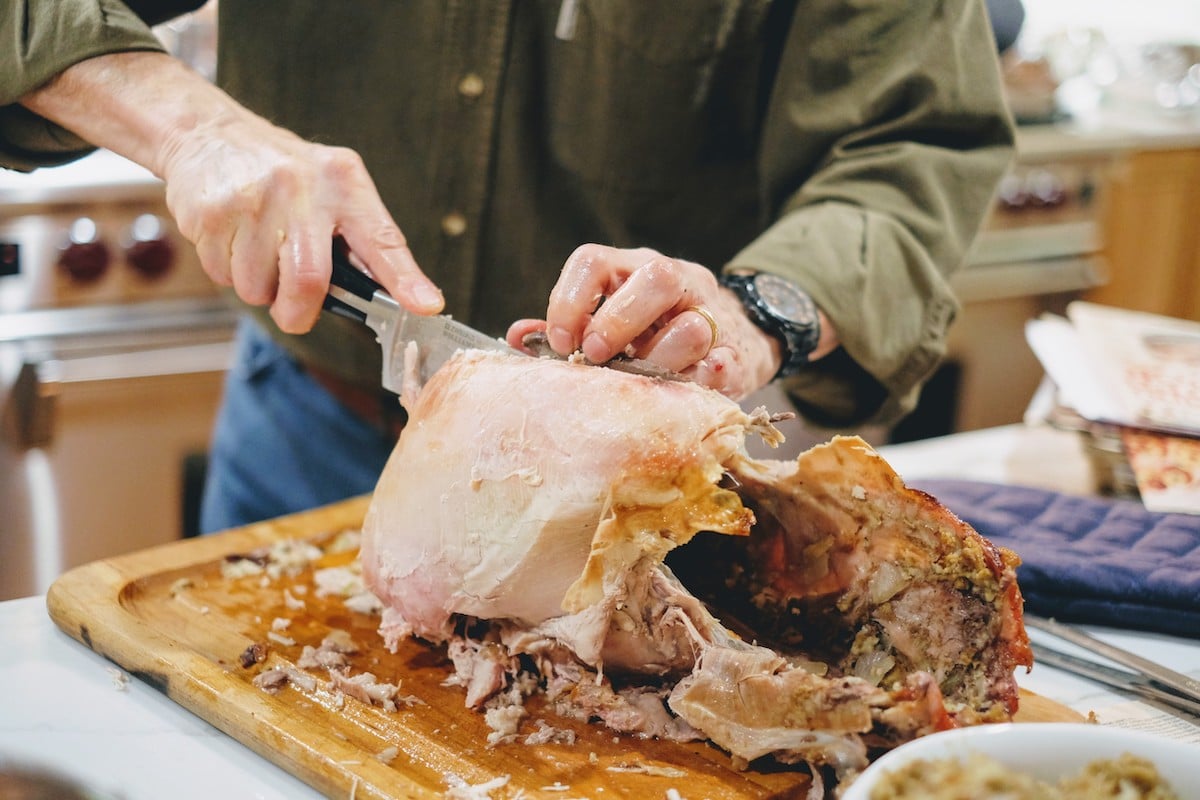
Yes, you can freeze roasted turkey as long as the turkey has not been sitting at room temperature for over 2 hours.
However, I would suggest separating the turkey from the bone, that includes the cooked turkey breast and legs.
There are two main reason for this:
- The meat will cool quicker. The turkey should only be placed in the fridge/freezer once it has fully cooled down. But, as mentioned above, the meat should not be left outside the fridge/freezer for longer than 2 hours or the risk of food poisoning may increase; and
- The meat can be frozen into small portions. Freezing your turkey into smaller manageable portions will keep it ready to be used all in one go when needed. Don’t get me wrong, there is nothing to say that you could not freeze the turkey on the bone as a whole, but this will mean that you will have to use it all up once it has been defrosted and reheated, or throw the unused bits.
Warning: Once the turkey has been cooked, frozen, thaw, and reheated, it is unwise to freeze it again.
Once your meat is off the bone use the carcass to make a delicious soup packed with vegetables and some delicious turkey – A great meal for those winter nights -.
Ok, ok I know what you are thinking; “who wants to eat soup after such a huge meal?. Furthermore, who will have the energy to make the soup after all the food consumed in the feast?. And if you are anything like me, you would have eaten so much turkey in one meal that you probably won’t want turkey again for the rest of the week.
That is ok, the good news is that you can freeze the carcass until you are ready to make your delicious turkey soup. Just ensure that when you are ready to make your soup the carcass is defrosted in the refrigerator for 24 to 48 hours, no longer than that.
Can You Freeze Turkey After 3 Days?

In theory you can freeze turkey after 3 days, The United States Department of Agriculture (USDA) recommends that roasted turkeys are not left in the refrigerator for longer than 3 to 4 days.
However, as the freezing process only keeps the food as fresh as when it went in, freezing your turkey after 3 days of being roasted will mean the meat will be more on the verge of spoiling than on the fresh side.
Furthermore, the thawing process accelerates bacteria growth, and as your meat already had bacteria growing from being in the refrigerator for 3 days your risk of food poisoning increases significantly.
With this in mind, I would say no, do not freeze your roasted turkey after leaving it in the refrigerator for 3 days. But if you do; ensure you skip the thawing process and instead reheat your turkey from frozen and eat immediately.
Can I Freeze Cooked Turkey That Was Previously Frozen

Yes, you can freeze cooked turkey that was previously frozen, as long as the turkey was originally stored in the freezer uncooked, and the cooked turkey is fully cooled down before it goes back in the freezer.
If on the other hand you are trying to refreeze turkey that has been cooked, thaw and reheated, it is unwise to re-freeze.
The reason for that is because while the meat is frozen, any bacteria naturally occurring in the meat is inert. But as soon as the meat starts to thaw, bacteria starts to grow again.
Can Cooked Turkey Be Frozen And Reheated?
Yes, cooked turkey can be frozen and reheated as long as it is done once.
Just make sure the turkey is frozen and reheated properly:
How To Freeze Cooked Turkey Properly?
Any food put in the freezer will remain as fresh as when it went in. So, if the meat is frozen properly, it should remain unspoiled, and the flavor should remain intact.
Below are 6 simple steps to ensure your cooked turkey is frozen properly:
Step 1
Ensure the turkey is fully cooked.
The most accurate way to tell if the turkey is fully cooked is by using an internal thermometer. Place it in the deepest part of the tight muscle, when this reads 180 °F (26.6 °C) the bird is cooked. Please ensure your thermometer does not hit the bone or it can give you false readings.
Other ways (but less accurate) to check if the turkey is done are:
- Pierce the bird’s thighs, if the juices run clear the meat is likely cooked, if there is any blood in the juices, the turkey needs a little longer in the oven, and
- Check the meat for any pink spots; if the meat is brown all over, the turkey is done; if not, it needs longer in the oven. Just make sure you check in various places of the bird, more often the breasts are done before the thighs.
Warning: If the stuffing is cooking inside the bird, check this is done. Do not assume that because the turkey is done the stuffing is too. If it is not done, take it out of the bird and place it in an oven safe dish before putting it back in the oven.
Step 2

Remove the skin and the bone of the meat. This will allow the turkey to cooled down quicker.
Warning: Ensure the turkey has fully cooled down before step 3 takes place, but make sure you do not leave the meat standing at room temperature for more than 2 hours or you increase the risk of food poisoning.
Step 3
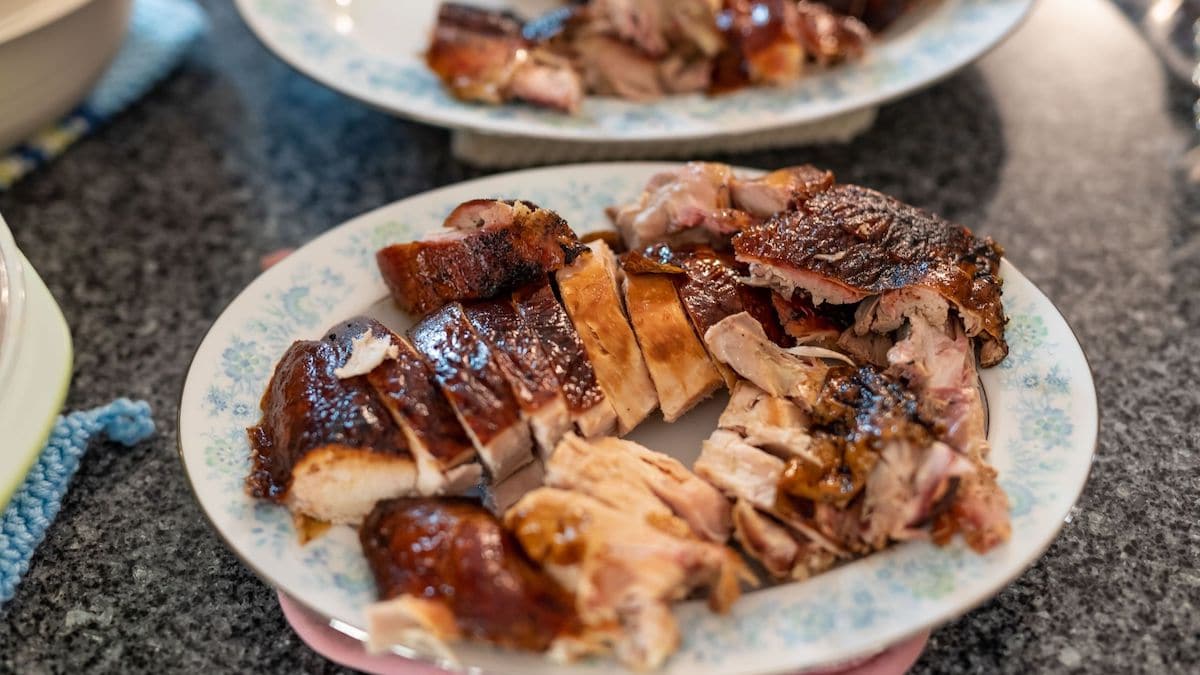
Separate the meat into small portions. This ensures you defrost what you need, when you need it, and prevent wastage.
Step 4
Place the turkey on an appropriate container ready for freezing (more on this, below).
Step 5
Label the container or bag with its content and date. This ensures you know exactly when you need to use-by the turkey, and what is in the bag.
Step 6
Freeze your turkey. Frozen turkey can last up to 9 months when frozen in pieces or up to 1 year when frozen as a whole.
How To Reheat Turkey Properly?
Lets now discuss how to reheat your turkey to ensure there is no risk of food poisoning.
Ok the first thing you need to know is that the turkey needs to be thawed properly.
Is in the thawing process where the natural bacteria and mould from the meat will start activity again. These are often harmless, but if it starts to multiply in large quantities; that is when you and your family can get ill.
How To Defrost Cooked Turkey
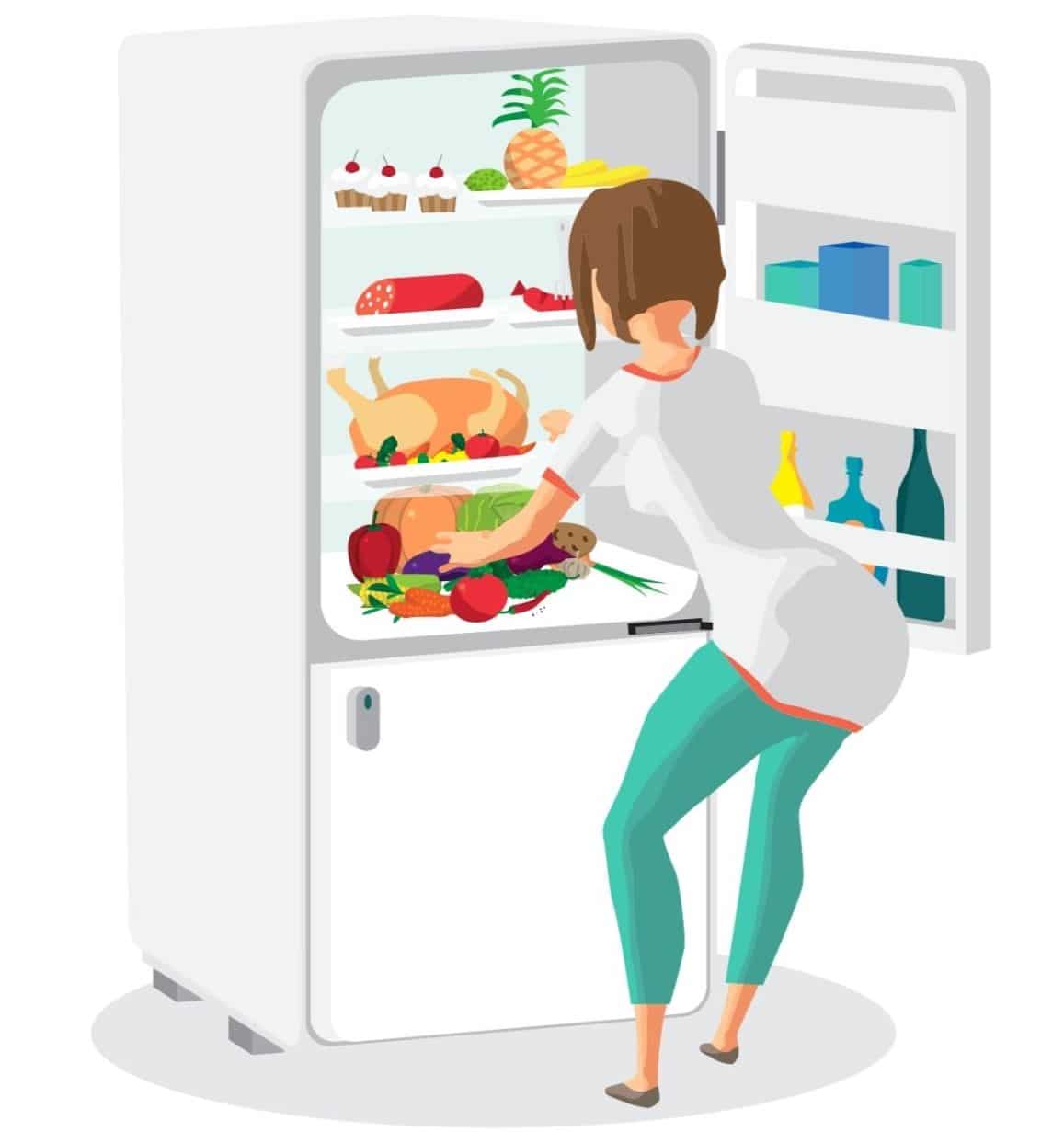
There are two ways to defrost properly your cooked turkey.
- Place the portion of turkey you want to be defrosted in the fridge until it is thoroughly defrosted (allow 4 hours per pound). Please ensure your turkey is not kept in the refrigerator for longer than 48 hours. Or,
- Place the frozen turkey into a waterproof container (if not already in one. But most freezable containers/bags are waterproof), and place the container in a bowl full of cold water. Make sure the whole bag is covered with water. Change the water every 30 minutes until the turkey is fully defrosted. This will ensure the water remains cold. This could take 2 to 3 hours instead of the 24 to 48 hours in the above point. Never use warm water to thaw your turkey as this will induce bacteria growth.
Alternatively, reheat your frozen turkey without thawing it in a saucepan (in the case of a stew), in the oven (in the case of a casserole), or microwave (in the case of a sandwich).
When you reheat your turkey, ensure it is steaming hot all the way through before eating it. The NHS recommends that all foods being reheated reach a temperature of 70 °C (158 °F) for 2 minutes.
What Is The Best Way To Freeze Cooked Turkey?
Your turkey’s worst enemy when in the freezer is “freezer burn”, this is when the meat has been damaged by dehydration and oxidation, in other words, your meat will get discolored and tough. This won’t be harmful to you or your family’s health, but it can make the meat less flavorful.
To ensure this does not happen, cover your turkey with cling film before adding it to an airtight container or Ziploc bag. Alternatively, place the meat in a vacuum-sealed bag (no need to use cling film if using this method).
When researching ways to freeze my turkey I found several blogs suggesting freezing the turkey with a little bit of gravy or stock to prevent it from drying. I tried it, and it worked. If you decide to proceed with this option, you obviously won’t need to use the cling film. This option is great if using the turkey in casseroles or stews, but not so great if the intent is to use the turkey for sandwiches, as it will make the meat a little soggy.
Let’s have a look at the advantages and disadvantages of each of the containers.
Airtight Container
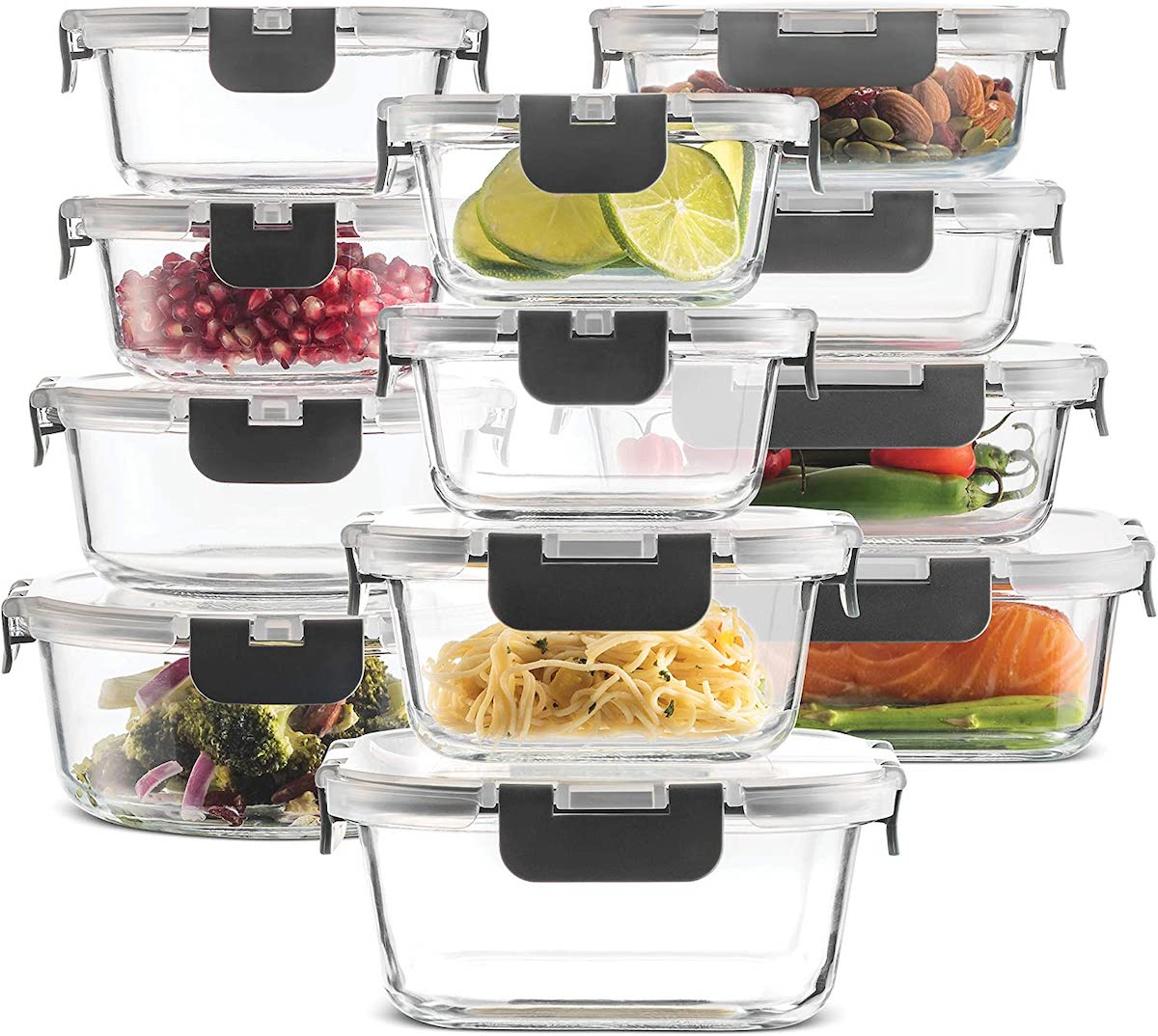
| Advantage | Disadvantage |
|---|---|
| No plastic wastage as they can be reused | They are bulky and thus can take a lot of space in the freezer and in your cupboard |
| Cheap to purchase. Especially when you consider how many time they can be reused | Sometimes plastic can absorb smells and flavours from other foods. This is especially true if used to freeze rich flavoursome foods such as spaghetti sauce. If the plastic container has any residues from other foods, this may get transferred into our turkey; potentially compromising the flavour of the meat. I would therefore suggest getting glass airtight containers instead of plastic. |
| The food is sealed so no chance of freezer burn | Harmful BPA chemicals transferring into the meat if using plastic containers. |
Ziploc Bag
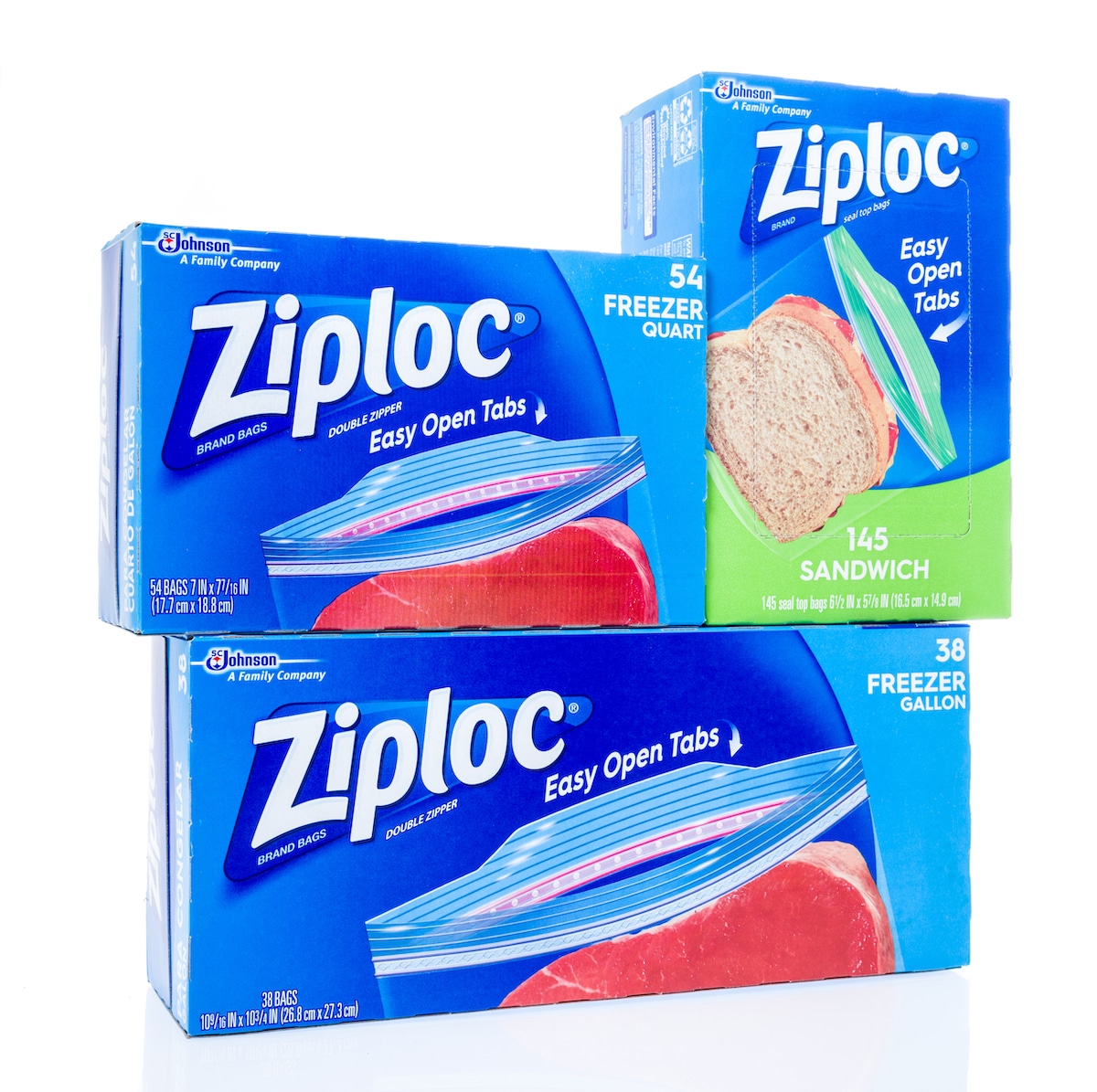
| Advantage | Disadvantage |
|---|---|
| Easy to stack in the freezer | Plastic waste every time a portion of turkey is defrosted. |
| Cheap to purchase | Plastic can discolour and absorb smells so may not be reusable |
| As the meat is sealed, it is unlikely to cause freezer burn. If storing the meat with gravy or stock, leave some headspace (empty space) above the meat, as the gravy will expand as it freezes. | Production of plastic harmful to the environment |
| Easy to organise into different portion sizes |
Vacuumed Sealed Container
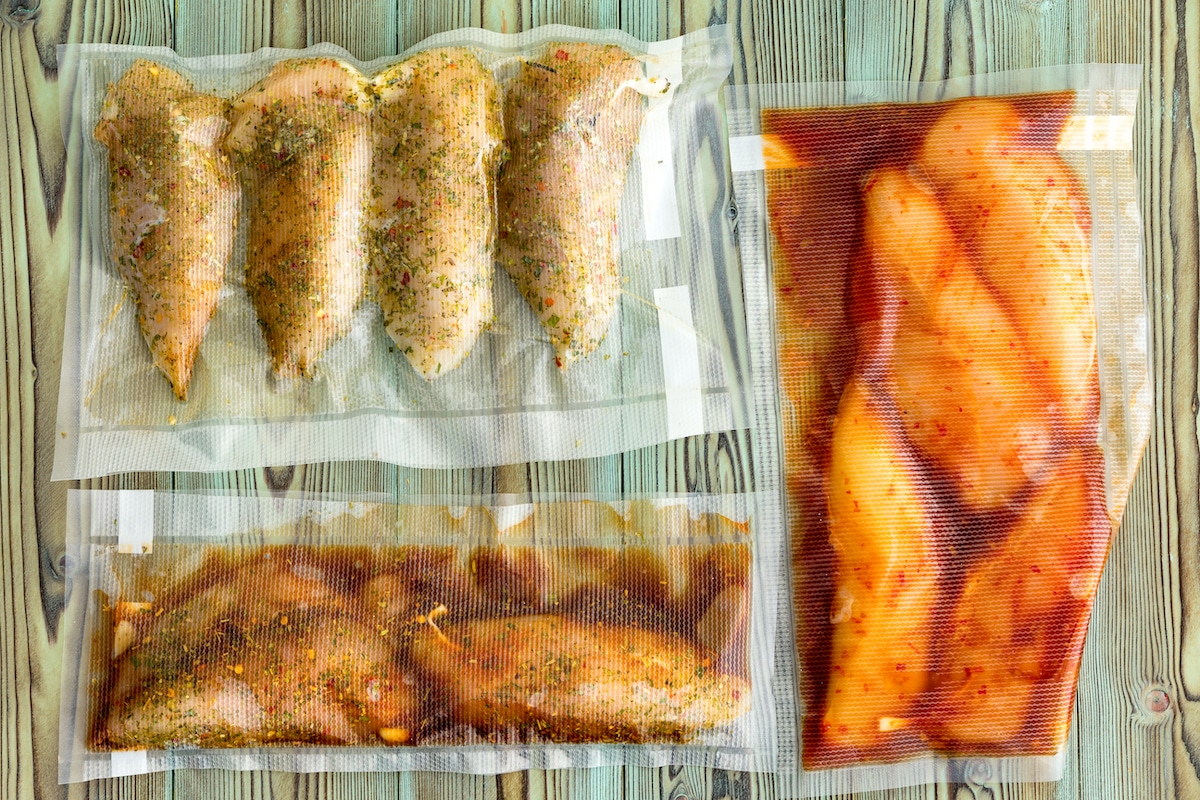
| Advantage | Disadvantage |
|---|---|
| Easy to stack in the freezer | Plastic waste every time a portion of turkey is defrosted. |
| As the meat is in a sealed bag, it is unlikely to be affected by freezer burn. If storing the meat with gravy or stock, leave some headspace (empty space) above the meat, as the gravy will expand as it freezes. I must admit having the gravy inside can make it a little difficult to seal. But I found this FoodSaver can do just about anything, it can even seal bottles of wine!. | Production of plastic harmful to the environment |
| As the bags are in a roll, you can freeze your turkey in a variety of bag sizes with minimum waste. | Require to purchase a vacuum sealer which is a big expense upfront |
| Easy to organise into different portion sizes | The Foodsaver can be very bulky to store |
Conclusion
You can totally freeze roasted turkey as long as the turkey has been fully cooled down and not left at room temperature for longer than 2 hours.
To help the meat cool down faster, it is best to remove the skin and the meat from the bone. Furthermore, freezing the turkey meat into small portions will allow you to defrost only what is needed at the time it is needed; avoiding any wastage of this delicious, lean, healthy meat.
So, now that you know that roasted turkey can be frozen again after it has been cooked, get a big bird, and indulge yourself and your family with a feast fit for kings. After all, there is nothing more gratifying than having full bellies. And why not consider inviting a neighbour or 2 if they are on their own. After all, this is the time to spread joy in the lives of others.
